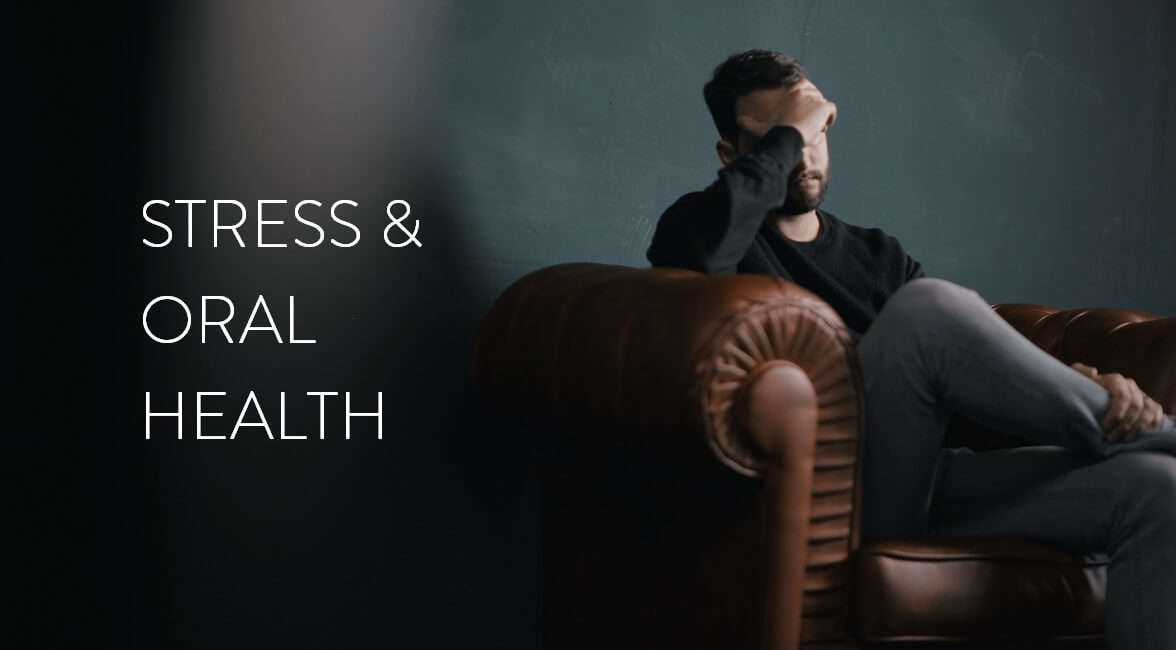
This article was originally published in Lumino Health and written by Paul Russell, in consultation with Edmonton Dentist Dr. Taha Chersa DMD.

No matter how well you’re doing, life stress can creep up on you. Work pressures, financial worries – relationship issues too. You’ve probably thought about how stress affects your mental and physical health. But have you thought about your oral health? You may be surprised at the many ways stress can affect your teeth.
One of the most common side effects of stress on oral health is teeth grinding. This can happen during the day or night. It not only causes potentially damaging wear and tear on your teeth, it can lead to jaw issues, neck pain and headaches.
And according to Edmonton-based dentist Dr. Taha Chersa, there’s an indirect impact of stress on oral health that can also be damaging: poor oral hygiene.
“With stress, many people look for ways to reduce their burden, because they already feel overwhelmed,” Chersa says. “So, they neglect or reduce brushing and flossing and skip dental checkups.”
Dr. Chersa also points out that poor nutrition can creep in during times of stress. So, instead of making a balanced meal, you might opt for fast food and grab the first thing that you can. Making that extra effort to choose healthy food is good for your oral health and your overall health too.
A simple dental checkup is an effective way to maintain your oral health in stressful times. In addition to cleaning your teeth, your dentist will ask if you’re experiencing any issues (such as pain in your teeth, jaw, or joints). They will also do a thorough check for decay or damage.
If there is evidence of teeth grinding, the dentist can provide a nightguard or dayguard that you can wear. These protect the enamel on your teeth and take pressure off the joints and muscles.
Dr. Chersa says that while there is some stress relief in chewing gum, the downsides outweigh the benefits.
“Chewing gum is designed to fool your brain that it’s a piece of food,” says Chersa. “Your brain is trying to break it down to swallow it. Your muscles get hyper-active and taxed. You may help one problem, but you create another.”
They can be, Dr. Chersa says. A heightened immune system response to stress can cause canker sores inside your mouth, or cold sores around your lips.
If your canker sores are painful or persistent, your dentist can prescribe a cream that can help. And for cold sores, he says a relatively new treatment that’s proven effective is laser treatment. This can help kill the virus that’s in the sore. Many dentists now offer this treatment.